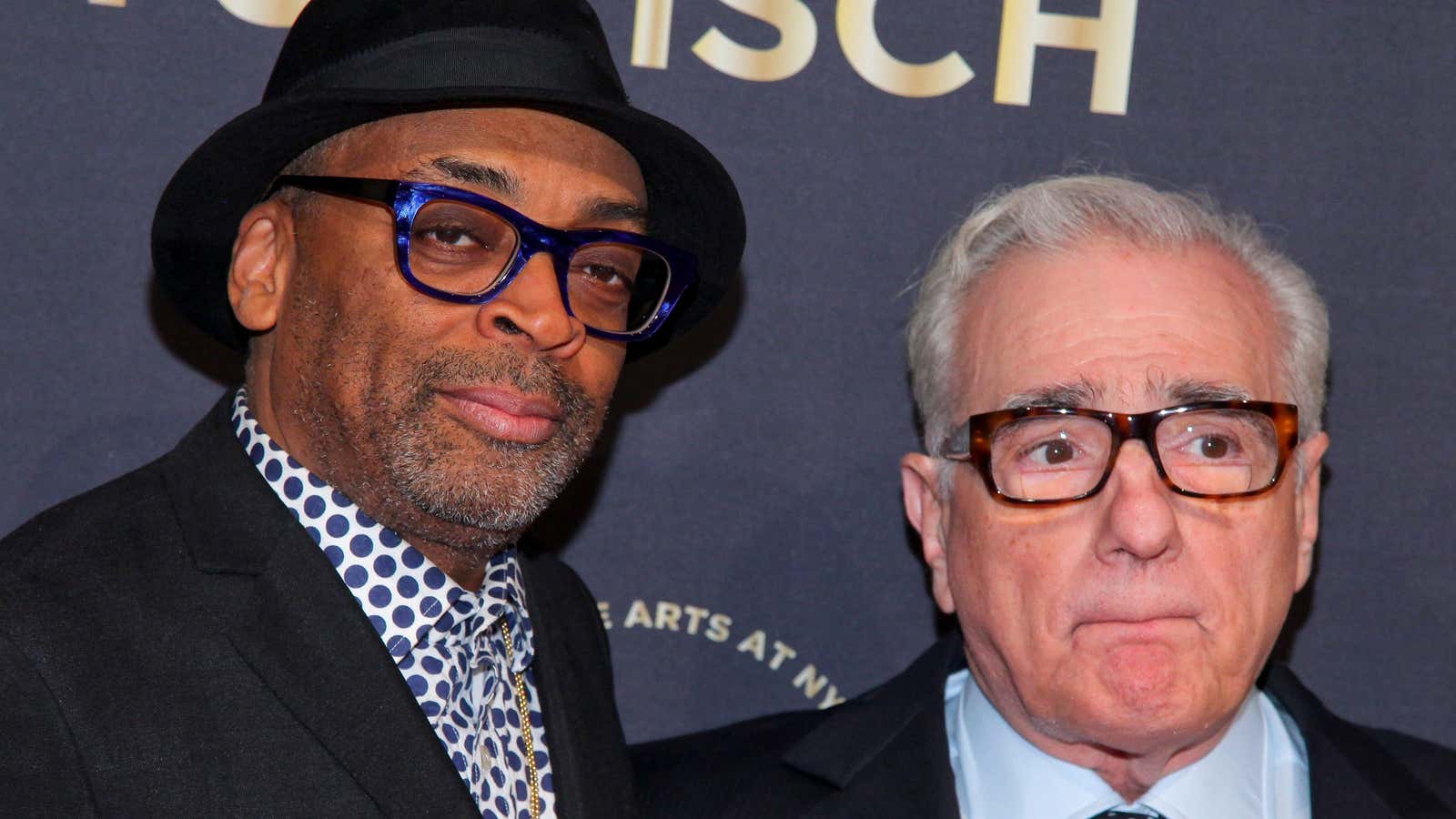It has become increasingly clear as we approach the 2019 Oscars that the Motion Picture Academy has absolutely no idea what it’s doing. And now a group of legendary Hollywood filmmakers has about had enough.
The Academy of Motion Picture Arts & Sciences, the organization of film industry professionals that puts on the Oscars, announced earlier this week that in an effort to keep the show at three hours, it will present four categories—cinematography, editing, live-action shorts, and makeup and hairstyling—during commercial breaks. Edited versions of the winning speeches will then be aired later in the Feb. 24 broadcast.
This decision pleased no one, least of all the filmmakers who will be affected. The American Society of Cinematographers immediately voiced its displeasure. Last year’s best director winner, Guillermo del Toro, and this year’s frontrunner, Alfonso Cuaròn, both criticized the move. Academy Award-winning actor Russell Crowe was slightly more blunt: “It’s just too fucking dumb for words,” he tweeted.
Yesterday (Feb. 13), dozens of prominent directors, including Martin Scorsese, Spike Lee, Quentin Tarantino, Dee Rees, Spike Jonze, and Ang Lee, signed a spirited letter condemning the new system as “an insult” to the professions in question:
An Open Letter to The Academy of Motion Picture Arts & Sciences and The Producers of the 91st Annual Academy Awards Broadcast:
On Monday, February 11, 2019, John Bailey, President of the Academy of Motion Picture Arts & Sciences, announced that this year’s Oscar presentations for Best Cinematography — along with Film Editing, Live Action Short and Makeup and Hairstyling — will not be broadcast live, but rather presented during a commercial break. This decision was made to reduce the length of the show from four hours to three. The vocal response from our peers and the immediate backlash from industry leaders over the Academy’s decision makes it clear that it’s not too late to have this decision reversed.
The Academy was founded in 1927 to recognize and uphold excellence in the cinematic arts, inspire imagination and help connect the world through the universal medium of motion pictures.
Unfortunately, we have drifted from this mission in our pursuit of presenting entertainment rather than in presenting a celebration of our art form and the people behind it.
Relegating these essential cinematic crafts to lesser status in this 91st Academy Awards ceremony is nothing less than an insult to those of us who have devoted our lives and passions to our chosen profession.
The show’s director, Glenn Weiss, has stated that he will determine what “emotionally resonant” moments from the four winners’ speeches will be selected to air later in the broadcast. The show will cut any additional comment from presenters, as well as any recitation of the nominees as they see fit.
We consider this abbreviation and potential censorship to run contrary to the spirit of the Academy’s mission.
Since its inception, the Academy Awards telecast has been altered over time to keep the format fresh, but never by sacrificing the integrity of the Academy’s original mission.
When the recognition of those responsible for the creation of outstanding cinema is being diminished by the very institution whose purpose it is to protect it, then we are no longer upholding the spirit of the Academy’s promise to celebrate film as a collaborative art form.
To quote our colleague Seth Rogen, “What better way to celebrate achievements in film than to NOT publicly honor the people whose job it is to literally film things.”
(See the full list of signees at the Hollywood Reporter.)
Update (Feb. 14): Since this story was published, many more directors and actors added their names to the letter, including Christopher Nolan, Robert De Niro, Sandra Bullock, Kerry Washington, and Brad Pitt.
Academy president John Bailey clarified that the executive committees for the four branches volunteered to have their respective awards presented during commercials, and that some viewers won’t even know the difference. But critics were already on edge from all of the Academy’s other debacles: First, it announced the misguided “Popular Film” award, which was immediately abandoned after unanimous backlash. Then, of course, there was the whole Kevin Hart snafu, leaving the show hostless for the first time since 1989.
In a desperate effort to appeal to the masses, the Academy is beginning to alienate its most loyal professionals. And, if the TV ratings are as bad as pundits expect them to be, it will alienate its only remaining viewers, too.
